We tested the best puppy toys 2026 for chewing, play, and enrichment
Our tried-and-tested selection of the best puppy toys for durability, suitability, and tiring out your pup.
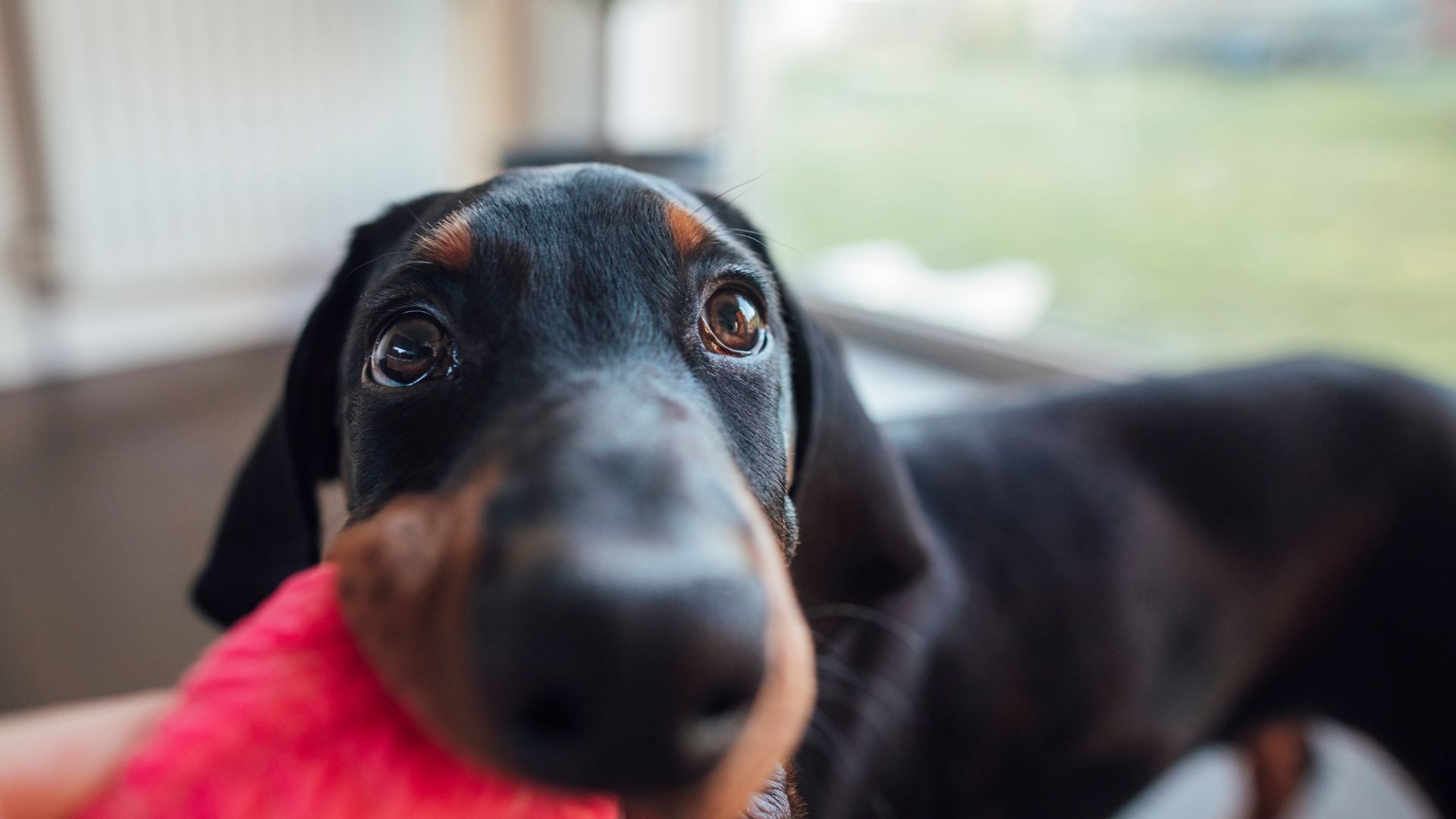
Get the best advice, tips and top tech for your beloved Pets
You are now subscribed
Your newsletter sign-up was successful
Buying the best puppy toys is an investment worth making. Dogs are smart animals, and, as puppies, sometimes they can be challenging as well as bags of fun and love. Pups need mental and physical stimulation daily to prevent problems due to stress, boredom, or discomfort from situations such as teething or separation anxiety.
Toys for puppies can also help as a second pair of hands if you are busy (which, let's face it, most of us are) and can’t give your full attention or in circumstances when you are learning how to crate train a dog for example.
Toys burn off energy helping your puppy to settle physically and mentally, and they're also super handy when your dog is teething so that you redirect them onto a toy instead of nipping your hands. The journal Applied Animal Behavior Science, adds that play develops a dog’s motor skills and assists with social cohesion so there is a lot more to it than just fun.
As pet owners, we've spent more than enough time (and money) finding out what makes great puppy toys worth it. We tested several products from cuddly companions for helping our pups sleep to fetch toys and chewy options to sink their teeth into. Assisted by vet and pet behavior consultant, Joanna Woodnutt MRCVS, we've rounded up nine options we'd buy time and time again and we've highlighted the benefits of each choice too.
“Puppy toys provide mental stimulation, learning through play, and an outlet for their chewing instinct,” Dr Woodnutt affirms, so here are our favorites.
The best puppy toys 2026
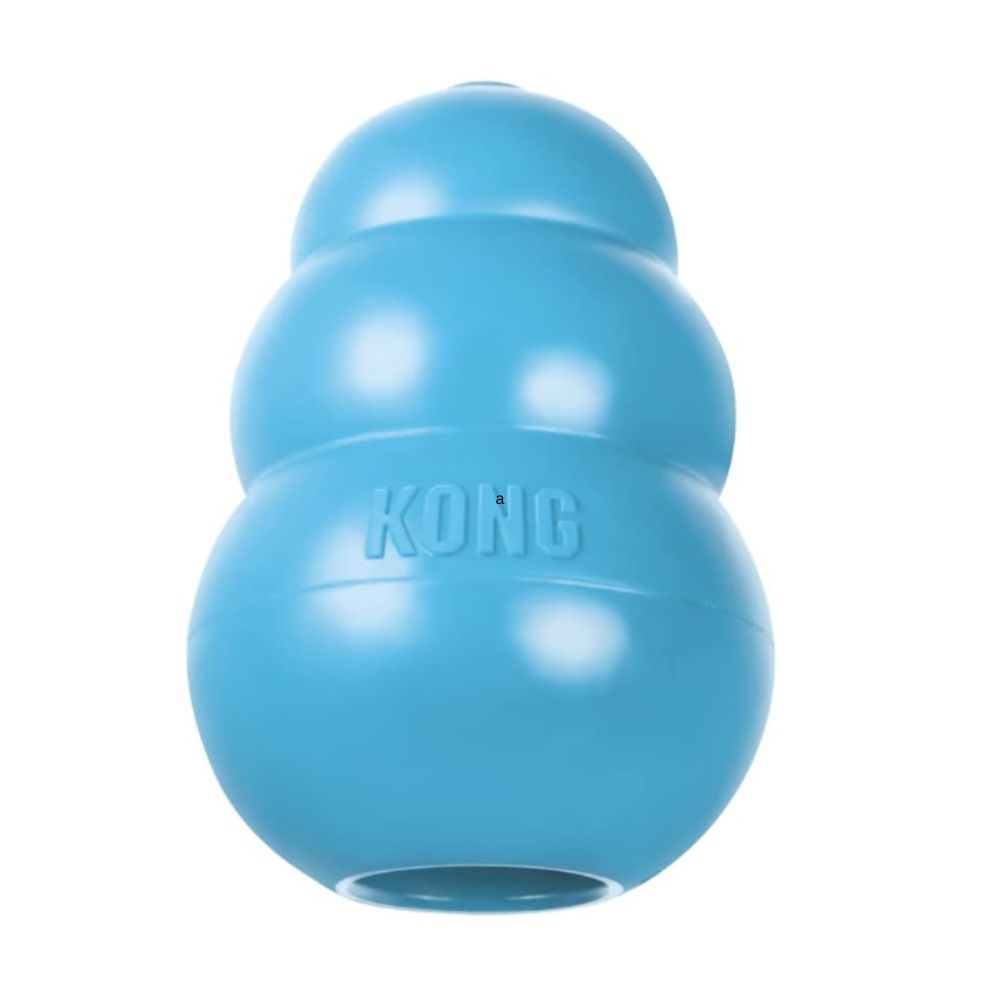
The best puppy toy overall
Type: Chew/enrichment activity
The Kong Natural Teething Toy is our best pick for a durable and mentally stimulating toy for your puppy. It doubles up as a slow feeder and a toy and is great for teething pups who chew just about everything. This KONG also stood the test of time because it's durable and is still being used by our dog years later, even though he's not a puppy anymore. It's easy to clean (we put it in the dishwasher) and is great for a game of hide and seek. It worked brilliantly when we stuffed softened kibble inside if you don't want to buy KONG treats to go in it.
This KONG doubled up as a way to tire out our puppy, Wally, as we added his puppy food to it and hid it for him to sniff out. He loved reaching every last scrap of food and found the activity really tiring.
Reasons to buy: Durable and a slow feeder.
Reasons to avoid: Requires plenty of treats to fill it.
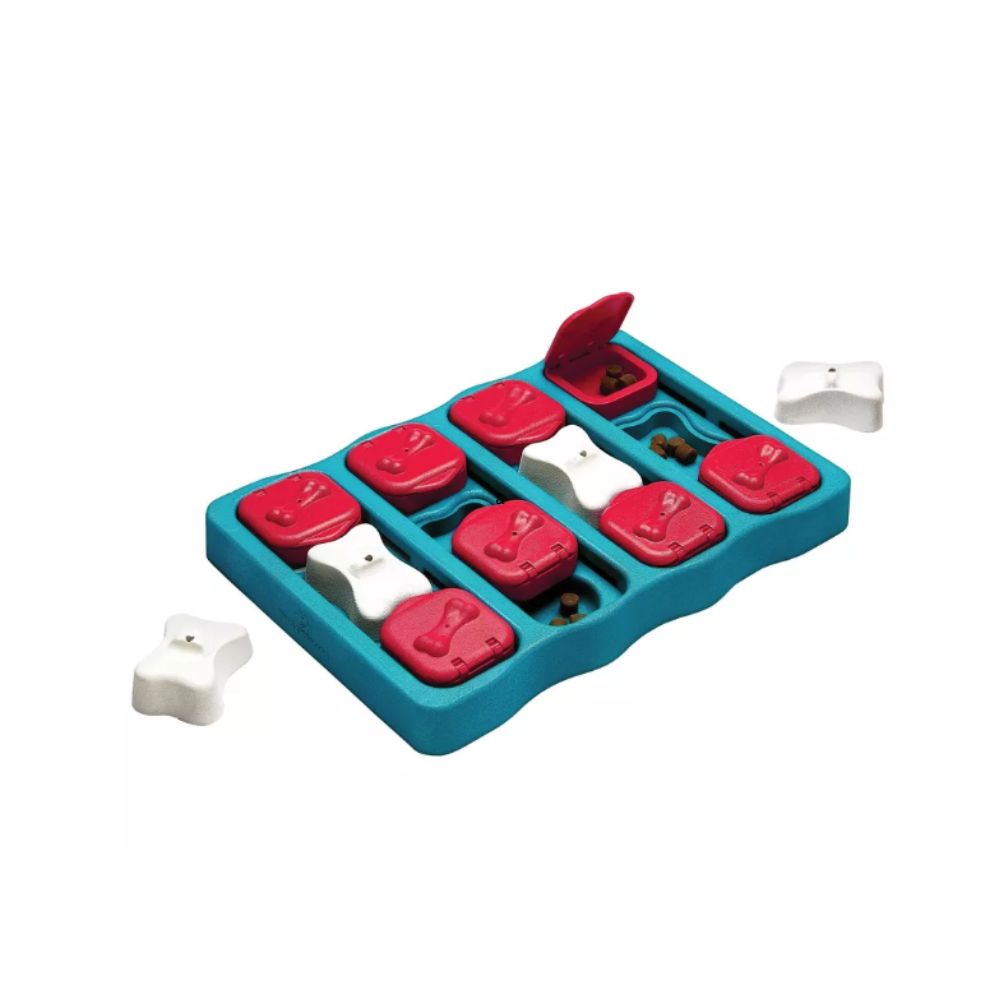
The best puppy toy for fighting boredom
Type: Food enrichment toy
Food-motivated pups who love to seek out treats can feed their natural hunting instincts with this puzzle toy. We loved that it made our puppy, Wally, really work for his food and provided plenty of mental stimulation. It also doesn't require much input from you once you've added the treats.
Our puppy tester loved using his nose to sniff out the treats and found it very rewarding too. It's an ideal activity if you need to get some work or chores done but don't want to watch the puppy constantly. The only thing we found wasn't so good was that the lids on the bricks would come loose which wasn't ideal and frustrated our pup a little.
Reasons to buy: Super easy to set up.
Reasons to avoid: The brick lids often come off.
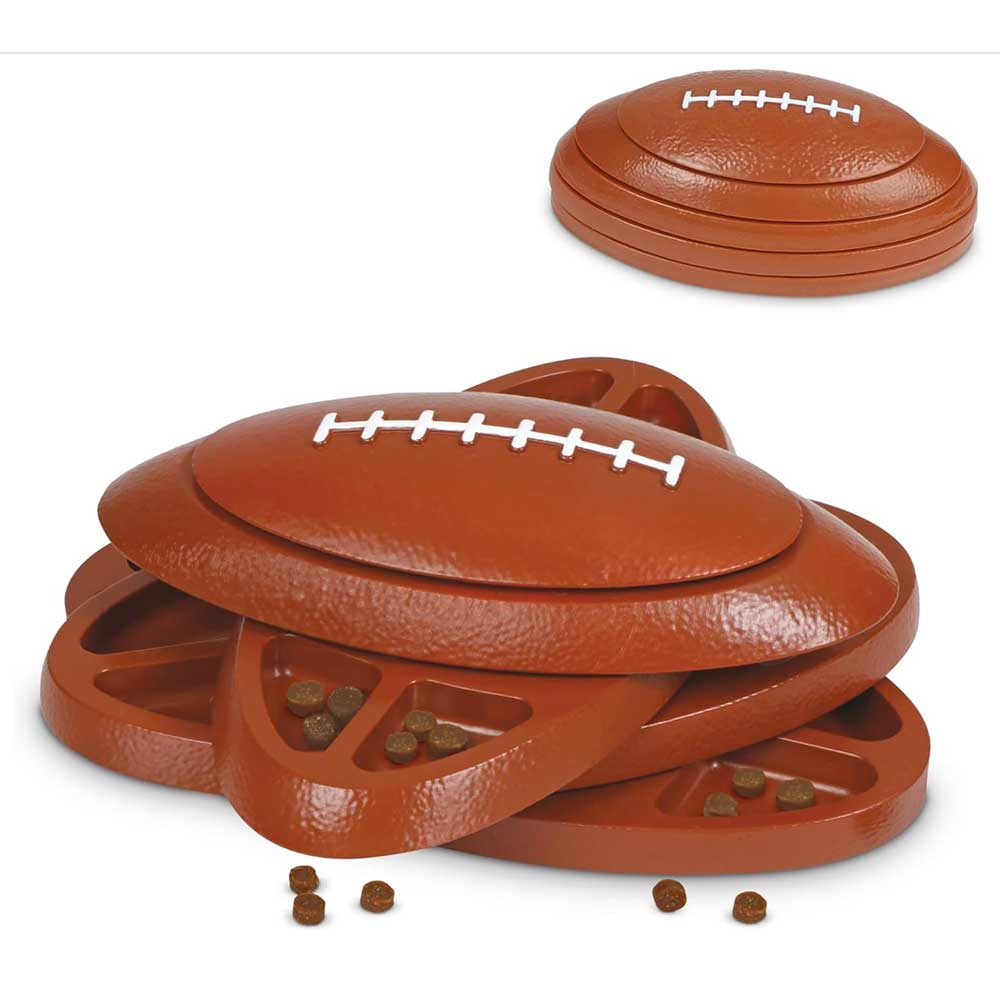
The best puppy toy for durability
Type: Food enrichment toy
We're fans of toys like this Brightkins option that prevent pups from gobbling up their kibble.
The durability stood out to tester and pet parent Brent, who liked how it "seems very durable as it has loose hinges which make the different levels of the toy very easy to spin and for the dog to access the pockets of kibble/treats."
Brent's pooch, Sandy, became quite adept at solving the puzzle, "using her nose to move the pieces out of the way to eat the kibble I put in there".
However, he didn't think it would suit teething pups, because there "aren’t really parts that would allow for proper teething."
Of the three Brightkins puzzles Brent tested, the simplicity of cleaning this one appealed, as he added "this was the easiest to clean due to there only being 4 levels of the puzzle and not a lot of moving pieces".
Reason to buy: Good durability, easy to clean
Reason to avoid: Not great for teething
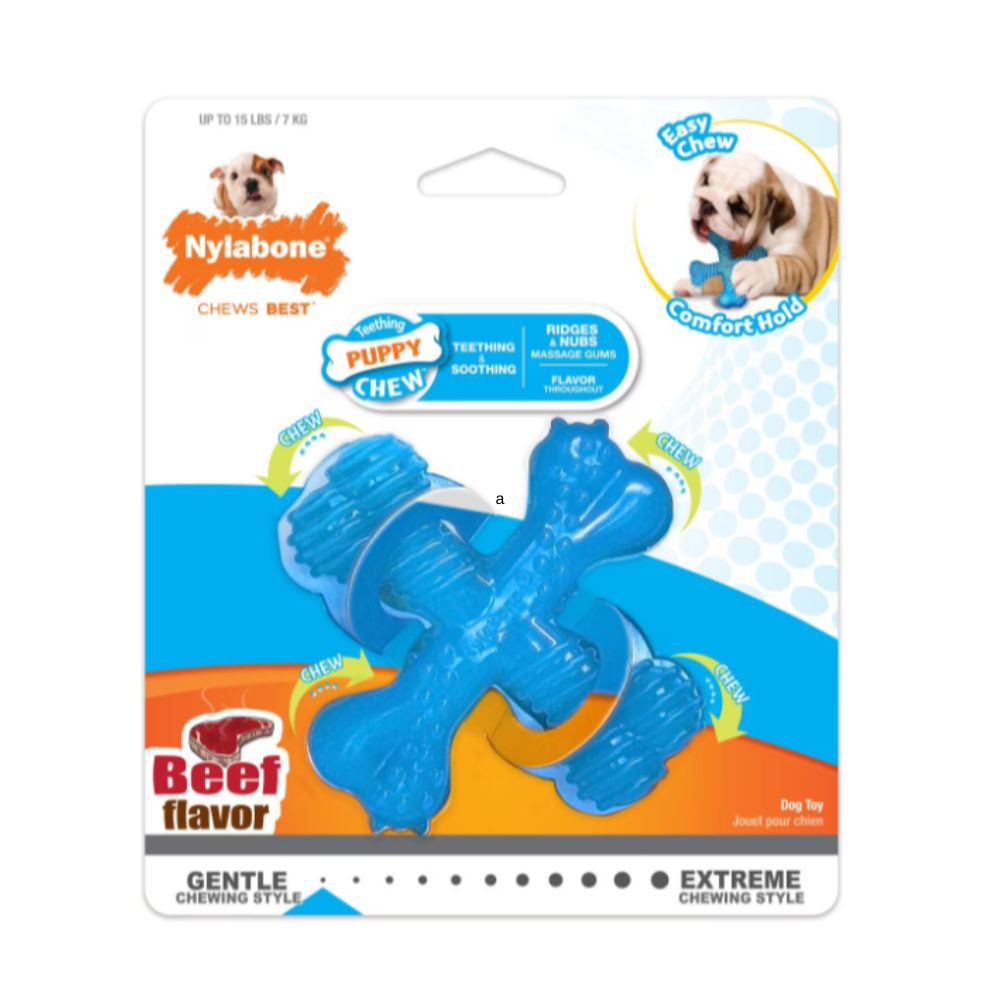
The best puppy toy for teething
Type: Chew
Puppies might look cute but those razor sharp teeth are no joke. For when your pups are going through teething, you need something they can dig those teeth into (that isn't your furniture) and the Nylabone Puppy Teething Chew is on of the best puppy toys for teething.
Our tester Gillian and her pup Quinn tried out the Nylabone. Gillian said, "Quinn LOVED these Nylabones because she was teething". We like how long these chews last and they are coated in a tasty flavor that keeps pups occupied without any mess. If you have a really aggressive chewer on your hands though, this might not be for you.
Reasons to buy: Helps with teething.
Reasons to avoid: Too soft for aggressive chewers.
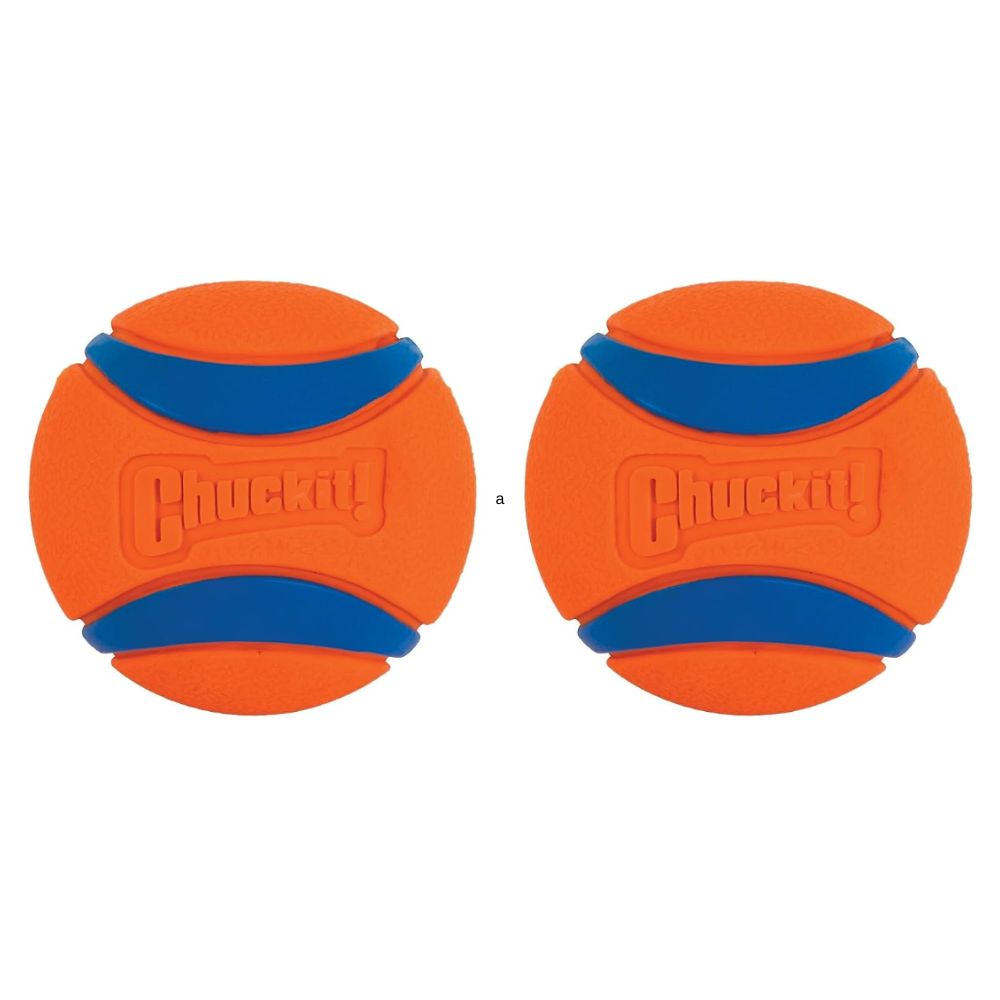
The best puppy toy for playing fetch
Type: Ball
Not all puppies are food-motivated and so the KONG and puzzle toy won't be the right option for your pooch. Instead, we love the Chuckit! Ultra Ball because it's great for teething pups and because it's not made of tennis ball material, your pup can't pull off the coating (which is a risk with a standard tennis ball).
Our pet parent tester Gillian and her goldendoodle pup Quinn love the Chuckit! Gillian said, "These are her favorite balls to play fetch with. They're super durable (although she isn't an aggressive chewer) and she'll seek this out over other tennis balls". A great option for play, just be sure not to over-exert your pup while their legs and muscles are developing.
Reasons to buy: A durable toy that's safer than a tennis ball.
Reasons to avoid: Can hype some puppies up.
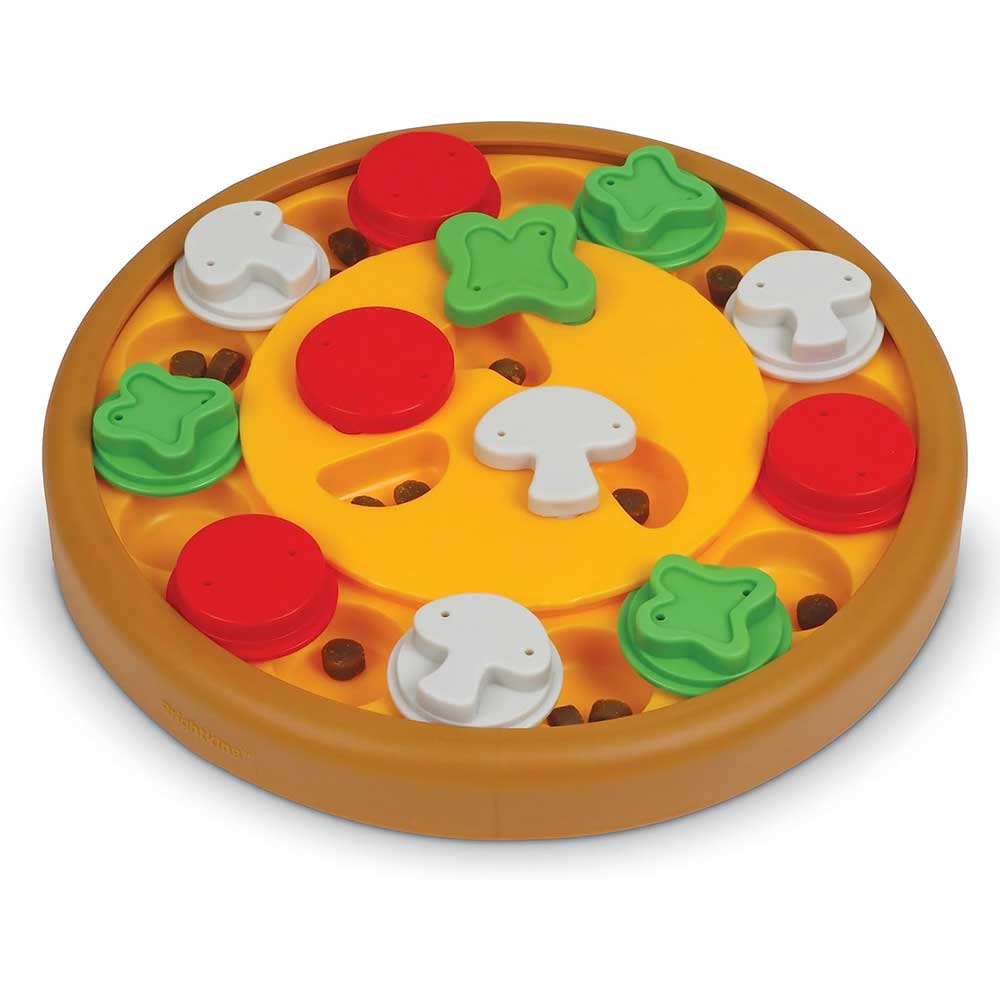
The best puppy toy for mental stimulation
Type: Food enrichment toy
Providing puppies with plenty of mental stimulation, we love how this puzzle toy will make them work to move the toppings around to access the treats below.
While dog Sandy wasn’t aggressive with it, owner Brent thought it would be relatively long-lasting, commenting “It seems like it would be a durable toy”. He added “There weren’t any parts that appear to be loose or [that could be] potentially ripped off.”
While not as easy to clean as the Touchdown Time Treat Puzzle, Brent still found this Brightkins puzzle toy “relatively simple to clean”, despite the “many small compartments and a lot of parts to move out of the way” in the process.
Reason to buy: Fairly simple to clean, very durable.
Reason to avoid: Plenty of food needed to fill it.
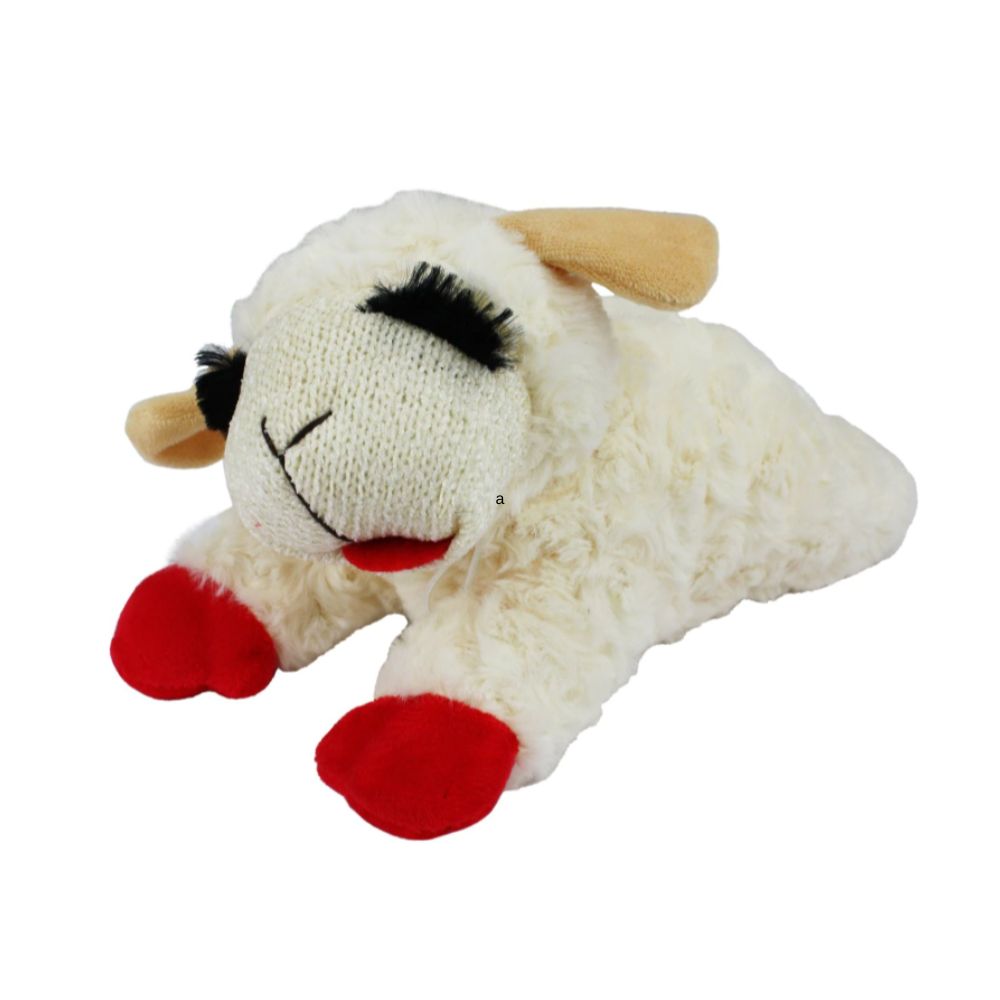
The best puppy toy that's soft
Type: Soft toy
Some pups just prefer something soft to snuggle up with (or bring to you at every opportunity) and we love the Multipet Lamb Chop Squeaky Toy for just that. Our tester pup, Quinn, loved this toy when she was tiny but still loves it now as an adult dog so it has stood the test of time. Quinn's owner, Gillian said, "They come in different sizes too so she had a small one as a puppy and then we got her the bigger ones as she got older".
Gillian added, "[This toy] was easy to clean in the washing machine and it has squeakers in the paws which she likes." Quinn isn't an aggressive chewer though so if your pup is, be sure to supervise so that stuffing doesn't come loose.
Reasons to buy: Soft and snuggly and easy to clean.
Reasons to avoid: Not suitable for chewers.
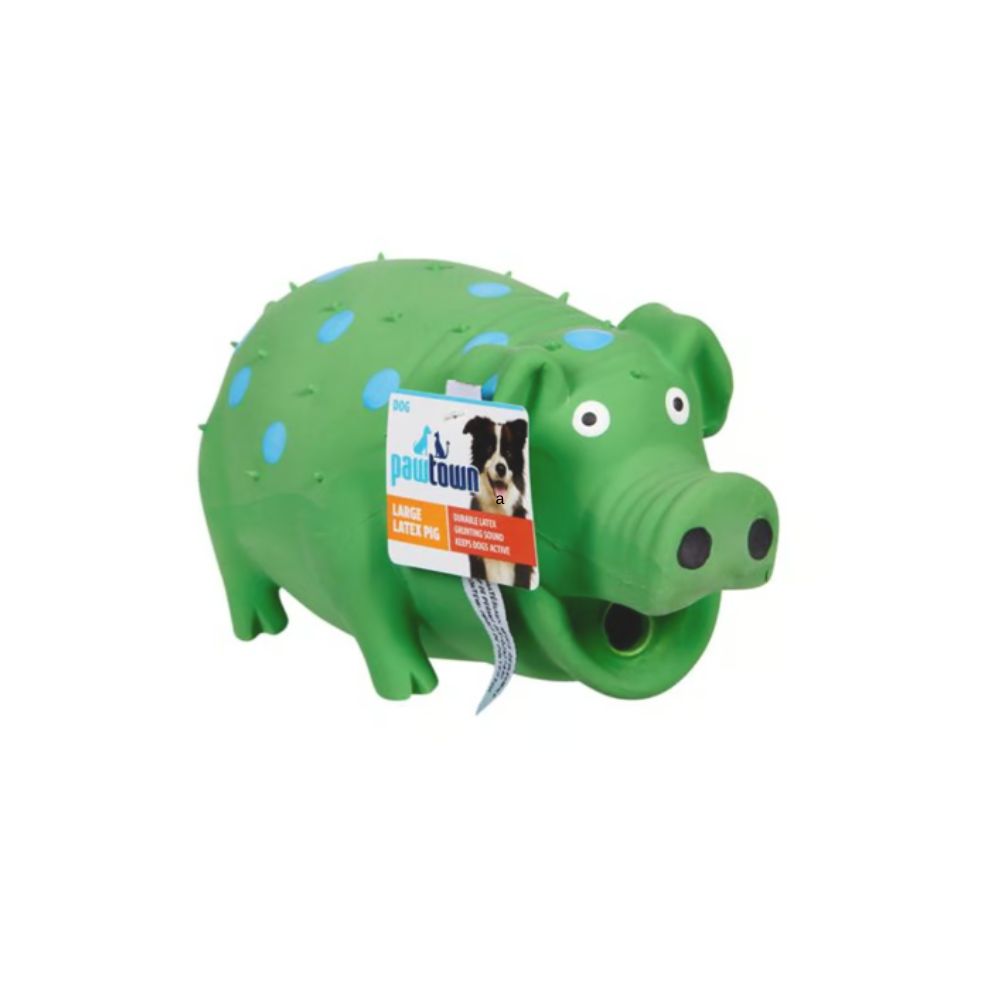
Best puppy toy with a squeaker
Type: Squeaker toy
Puppies are into all kinds of things but squeaky noises are irresistible for some. During testing, pawrent Brent admitted that his golden retriever pup, Sandy, "is a big fan of balls but this toy is arguably her favorite".
Brent added, "We do have to take it off her sometimes because while she loves the deep sounding squeak, it does get quite annoying for us humans. Sandy has loads of toys, and some she isn't fussed with, but she consistently comes back to this pig time and time again." This toy is a great option if you want something easy to clean and that'll last.
Reasons to buy: Durable and easy to clean.
Reasons to avoid: The squeaker is quite annoying.
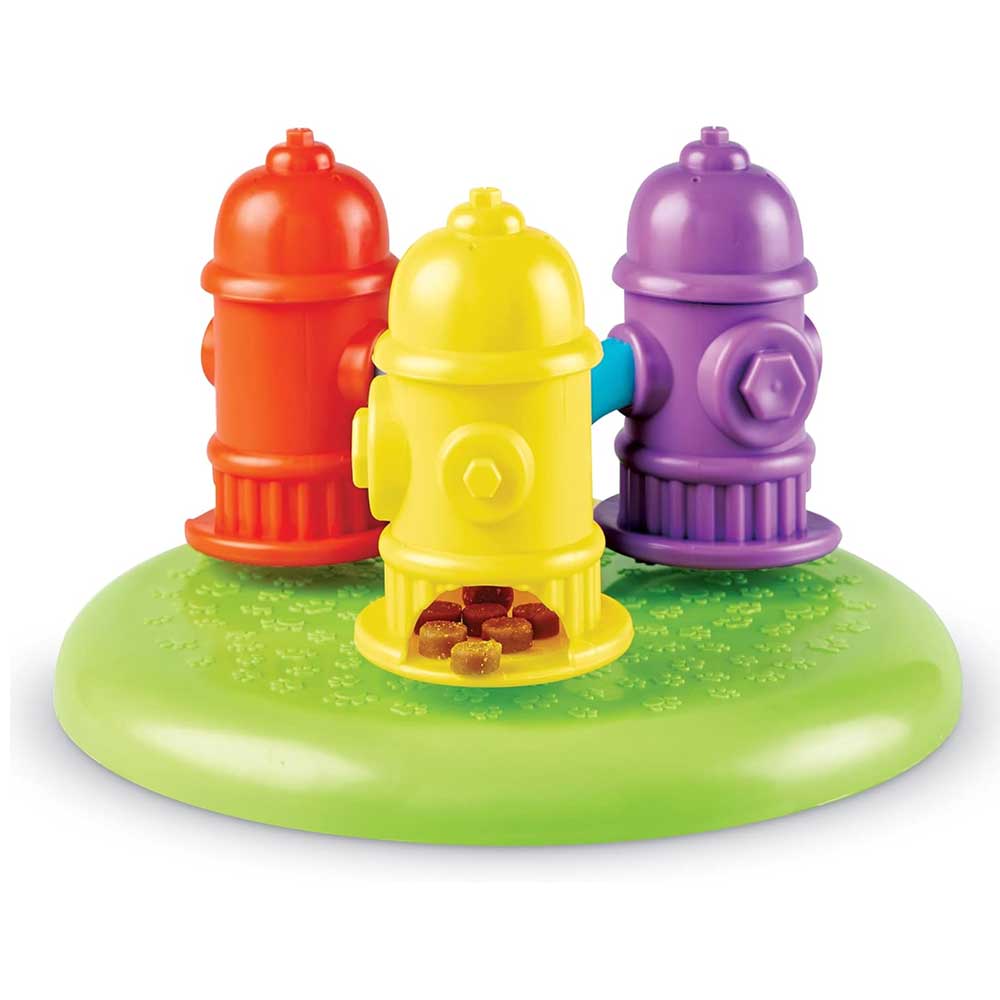
The best puppy toy for food-loving pups
Type: Food enrichment toy
This is one for the more food-focused puppies out there, with pup Sandy proving a case in point. Tester Brent said: "I'd consider this toy safe for my dog who was more interested in the kibble we put in the fire hydrant portions".
Something that could deter pup parents, however, is that the tops of the fire hydrants come off, with Brent adding "I could see a dog grabbing those which would create a choking hazard".
Of the three Brightkins puzzles he tested, Brent thought this was the hardest to clean, as the “space inside was small and difficult to get my hand in”.
While Sandy isn't an aggressive chewer, it seemed the least durable of the three too, as Brent said "I could see a more aggressive dog damaging parts of the toy".
Reason to buy: Good for food-focused pups.
Reason to avoid: Top of fire hydrants come off, tricky to clean.
How we tested the best puppy toys
Hands on testing
We couldn't bring you a guide to the best puppy toys without putting each product through its paces with the experts...puppies! Each and every one of the products in this guide has been tested by real puppies and used for several weeks (and much longer in many cases as you'll see above) to see how well it fared.
Durability and safety
We took into account things such as the durability of each toy and whether it was safe for a little pup with razor sharp teeth to play with because the last thing any pet parent needs is potential choking hazards for their pooch.
Since puppies can have a tendency to tear things up, especially when they're teething, we considered how long lasting these toys were and whether they were also easy to clean to keep them hygienic.
Squeaks and fun elements
During testing, we made note of any fun elements that made the toys even more appealing to our puppies. Squeakers are great fun for dogs but not all owners will be keen on listening to them so we've taken this into account. Some of the food-related toys we tried also needing testing for how difficult they were for the pups to figure out as anything that's too challenging can be incredibly frustrating for the dog, rather than engaging.
Should my puppy always have toys?
Your puppy needs toys to prevent them from becoming bored, but whether or not a puppy should have toys all of the time is another question entirely. In general, it's never a good idea to have too many toys out at once and to only bring out playthings when you feel a puppy will benefit from them. It will stop a pooch from becoming overwhelmed while keeping their interest high.
“It’s generally a good idea to give your puppy free access to at least one toy, especially when they’re going through a chewing phase,” says veterinarian Dr Joanne Woodnutt MRCVS. “However, keeping most toys hidden away and rotating them stops them from becoming boring.”
It's also a good idea to remove toys during mealtimes so that a puppy's focus is on food rather than play. Unless the toys are robust, you should also try and supervise play sessions rather than always leave puppies to their own devices.
How to choose the best puppy toy
It can be tempting to just stock up on the cutest, brightest, and perhaps cheapest puppy toys when buying for your new dog but it pays to do some research before committing to buy.
Cheap toys probably won’t last very long and those which are non-durable toys can leave a lot of mess behind – even presenting a choking hazard for very young dogs. It's a good idea to invest a little more money and look out for toys that claim to be durable. Check the type of material used: rubber tends to be a good option for most puppies because of their sharp teeth.
It's a good idea to buy toys with little to no stuffing, especially for destructive puppies. Stuffing can be easily ripped out and spread around your home, while those that feature other materials, such as rope, tend to last a lot longer.
Toys with flavorings, such as vanilla, mint or meat flavorings can help keep your puppy’s attention for longer, giving them extra motivation to chew. And look for toys that feature squeakers if your dog likes sound stimulation – although be aware that many puppies will try their hardest to rip out and destroy squeakers.
What toys should you not give to a puppy?
All of the toys we have listed here can be freely given to a puppy to play with but you should be aware that not all toys are suitable. Shy away from cheaply-made squeaker toys because there's a chance they could break apart and end up being swallowed. Also, avoid giving puppies toys with loose parts including batteries: you don't want to risk your dog swallowing such items.
Don't give puppies toys made for human children either – they're not robust enough to last enthusiastic chewing. Finally, if you are looking to give a puppy a food-related toy, avoid rawhide chews which can get lodged in a puppy's intestine.
“Avoid anything that isn’t made for puppies or seems to be poorly made.” says veterinarian Dr Joanne Woodnutt MRCVS. “Those teeth can get through many toys easily and you don’t want your pup to need surgery to remove a broken toy from his stomach!”
How many puppy toys should a dog have at once?
It can be tempting to open up the toy box and have many playthings available to your fur baby at any given time. But experts suggest rotating your puppy toys weekly so they have only access to four or five, each offering a variety of uses. These can include their favorite comfort toy, a rolling toy that will keep them busy, a chew toy to gnaw on and a puzzle toy to keep their mind active.
Should puppies have toys in their crate?
Adding toys into the crate can be a great way to associate that space with fun and interesting things for your pup to do. It’s worth making sure you rotate the toys so that they are still fresh and interesting to your dog, rather than leaving them in there for long periods of time.
What is the best toy for a puppy to chew on?
Dogs and puppies are usually very willing to give most toys a try, particularly where chewing is concerned. Toys made of harder rubbers tend to be good and safe contenders for chewing which also last. They are generally made in various shapes and sizes to cater to different mouths and puppy teething stages. Thick knotted rope toys are another good option especially if they like tug-of-war games as well as chewing and gnawing. Balls are a further option to consider however the popular tennis ball is not a great one to offer, while it is good for fetch games they don’t hold up to chewing.
Check with your vet if you are thinking about offering a rawhide chew product as these present a potential choking hazard plus many rawhides are by-products of the fur trade.
Do eight week old puppies need toys?
Toys should be classed as a necessity not a luxury for any dog and puppy due to their benefits. It is recommended that toys are offered to puppies between the ages of two and 10 months old as during this period they are experiencing rapid development. The toys given to your young furry friend need to be age appropriate but their breed and personal preference will also likely play a role in their favorite choices.
How many toys should a puppy have? This feature has the answer. If you’re not sure where to get started with these toys, here are some fun games to play with dogs.

As Editor of PetsRadar, Sophie lives and breathes all things pets but puppy toys are a thing she knows plenty about having bought more than she'd like to admit for her pup, Wally - an English cocker spaniel with wild amounts of energy and plenty of personality too. Sophie, like most puppy owners, searched high and low for puppy toys that were safe for her dog, durable so that no teeny bits broke off and became a choking hazard, and kept her pup occupied so she could work or take care of other tasks. In this guide, Sophie pulls together all of her advice on what to buy and to consider before you buy puppy toys.

After graduating as a vet from the University of Nottingham, Dr Joanna Woodnutt went on to practice companion animal medicine in the Midlands. She quickly developed a love of consulting and helping clients with medical problems such as dermatology, behavior and nutrition – anything that involved helping clients understand their pets better. Jo now is a regular contributor for PetsRadar, sharing her expert advice with pet owners across the globe.
Get the best advice, tips and top tech for your beloved Pets

Sophie is Editor of PetsRadar and has been working in publishing for seven years. Leading the team and daily direction of the website, Sophie has worked across some of PetsRadar’s biggest sister sites including LiveScience, TechRadar, and was most recently, Editor of Fit&Well. While she’s not busy making sure our readers have the very best advice to keep happier and healthier pets, Sophie is training her teenage cocker spaniel, Wally. Having found heaps of conflicting information out there when it comes to helping a reactive dog, or even choosing the right nutrition, Sophie is determined to cut through the confusion and bring the very best expert-led knowledge to PetsRadar.
